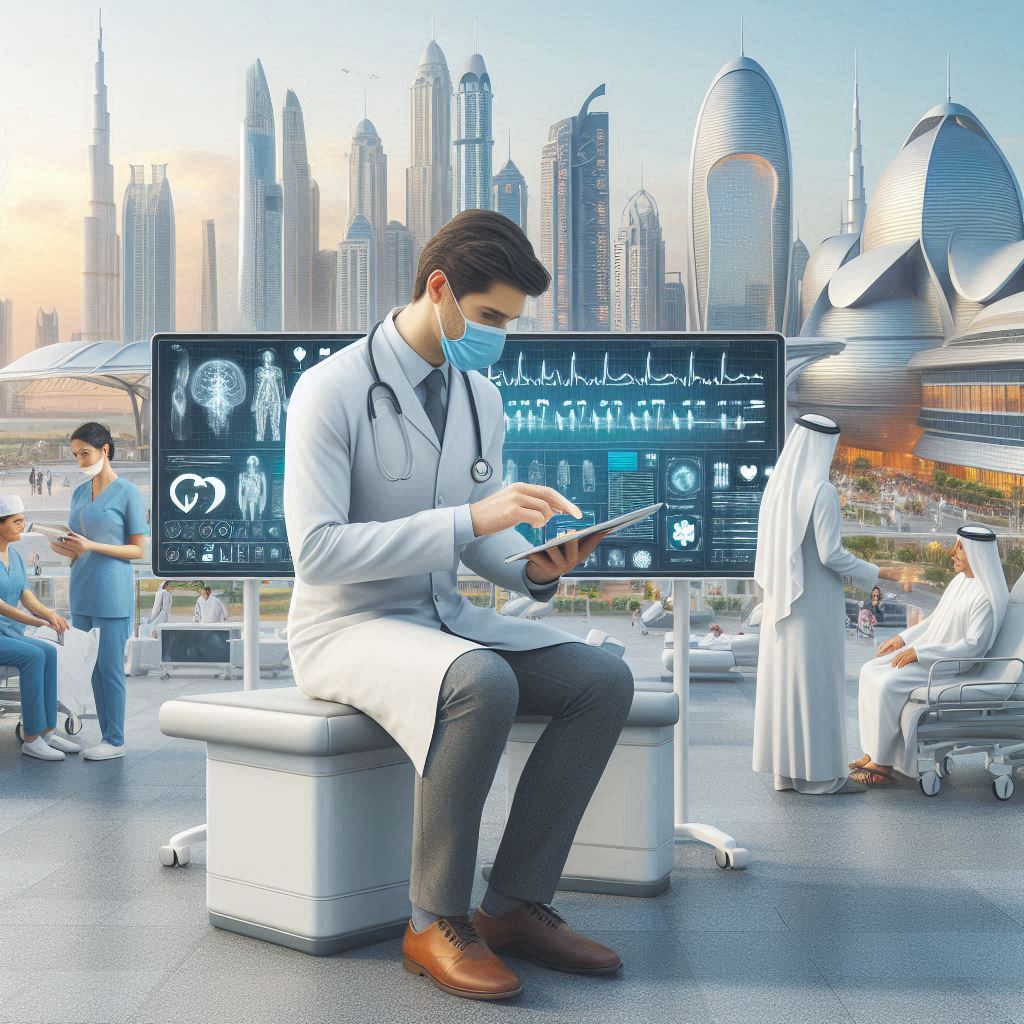The healthcare sector in the UAE is moving from a reactive, treatment-focused model to a proactive, preventive approach. The nation’s advanced digital health platforms Riayati, NABIDH, and Malaffi are the major forces driving this transformation. These systems are not merely digital repositories. They are powerful tools shaping the future of healthcare. They enable data-driven strategies that support preventive healthcare & chronic diseases management, promoting healthier lifestyles.
The Rise of Chronic Diseases & The Growing Need for Preventive Healthcare
The UAE, like many other developed nations, faces a growing prevalence of chronic diseases. Conditions such as diabetes, cardiovascular diseases, and obesity are becoming increasingly common. This trend places a significant burden on the healthcare system and impacts the quality of life for many residents. According to the EY report titled “Future of Health,” the region is facing a significant rise in non-communicable diseases (NCDs), with diabetes being among the highest in the world. This necessitates a strategic shift towards preventive care. Digital health platforms such as NABIDH, Malaffi, and Riayati are at the forefront of this change.
Riayati: The Unified National Health Platform
The Ministry of Health and Prevention (MoHAP) has launched Riayati, a unified national health platform. This platform integrates patient data from various healthcare providers across the UAE. Riayati, through its NUMR (National Unified Medical Record) initiative, aims to create a comprehensive and accessible medical history for every individual. This integration fosters a cohesive and efficient healthcare ecosystem. According to MoHAP, the Riayati platform is a key aspect of the UAE’s strategy to enhance healthcare services and improve patient outcomes by providing a unified healthcare record for every individual in the UAE.
NABIDH and Malaffi: Regional Powerhouses
Complementing Riayati in this mission are NABIDH in Dubai and Malaffi in Abu Dhabi. These regional health information exchange platforms play a vital role in aggregating patient data within their respective emirates. They collect and standardize data from hospitals, clinics, and other healthcare facilities, creating a rich repository of health information.
Data-Driven Strategies for Preventive Care
The combined power of Riayati, NABIDH, and Malaffi enables the development of data-driven strategies for preventive healthcare and chronic disease management. Here’s how:
-
Population-Level Data Analysis
Riayati, NABIDH, and Malaffi aggregate vast amounts of patient data, allowing experts to draw useful insights through comprehensive population-level analyses. By analyzing anonymized data, public health officials can identify trends, risk factors, and hotspots for chronic diseases. For instance, data analysis can reveal regions with high rates of obesity or diabetes, enabling targeted interventions.
Similarly, advanced analytics integrated with AI tools can be used to identify at-risk populations and help personalize interventions.
2. Early Detection and Intervention
These healthcare platforms facilitate early detection by tracking key health indicators and identifying individuals at high risk. For instance, they can be used to monitor blood sugar levels, blood pressure, and cholesterol levels. Based on this data, early intervention programs can be implemented, providing timely support and guidance to at-risk individuals, preventing the progression of chronic diseases.
3. Personalized Healthcare and Lifestyle Management
Riayati, NABIDH, and Malaffi support personalized healthcare by providing healthcare providers with a complete picture of a patient’s medical history and lifestyle. This empowers them to create tailored lifestyle management plans, including personalized dietary recommendations, exercise programs, and medication management.
According to an article by the Journal of Transactional Medicine, “By 2030, the primary focus of healthcare has shifted from treatment to risk definition, patient stratification, and personalized health promotion and disease prevention strategies of particular value for aging societies.” This means that the focus would no longer just be on how to treat and cure diseases, but on how to prevent diseases and mitigate health risks in individuals- the pinnacle of personalized healthcare!
4. Health Education and Awareness Campaigns
The data collected by Riayati, NABIDH and Malaffi platforms can be used to inform and target health education and awareness campaigns. For example, if data shows a high prevalence of obesity in a specific region, targeted campaigns can be launched to promote healthy eating and physical activity in that area.
5. Research and Innovation
Riayati, NABIDH, and Malaffi provide a valuable resource for research and innovation in preventive healthcare and chronic disease management. Researchers can use the data to develop new diagnostic tools, treatment strategies, and prevention programs.
6. Coordination of Care
Chronic disease management requires careful coordination among various healthcare providers. These health information platforms allow for easy information sharing between specialists, primary care physicians, and other healthcare professionals, ensuring continuity of care. This coordination is vital for patient compliance and effective management of chronic conditions.
The UAE’s commitment to digital health transformation in the form of Riayati, NABIDH, and Malaffi, is shaping a future of data-driven management of preventive healthcare and chronic diseases. The integration of these platforms, coupled with the adoption of advanced analytics and AI, is paving the way for a healthier and more sustainable healthcare ecosystem. With the nation continuing to invest in digital health infrastructure and promote data-driven strategies, it is on the path to becoming a leader in preventive healthcare.

